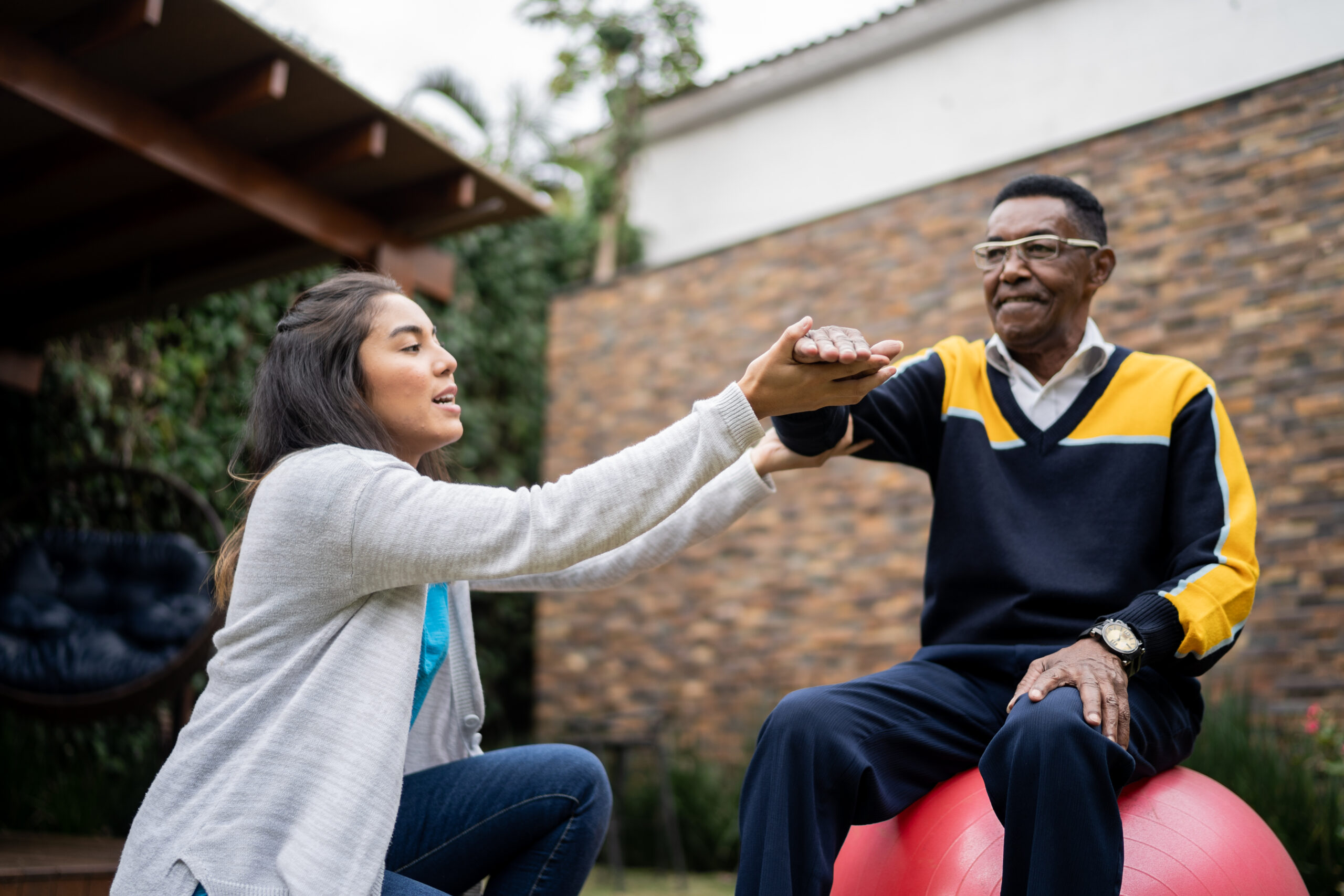

Get Back to Life's Essential Activities
Occupational Therapy
Occupational therapy at Rehab Without Walls seeks to assist individuals, both children and adults, to reintegrate into their daily lives – helping them to participate in essential activities they need, want, and enjoy doing through the therapeutic use of daily activities – also known as “occupations.”
Our occupational therapy practitioners utilize a holistic approach where the focus is on adapting the environment and/or task to each individual. In all of our settings, the individual, family, and care team are an integral part of the plan.
Therapeutic Interventions for Occupational Therapy Include:
Activities of Daily Living (ADLs): These are routine activities necessary for independent living, such as dressing, grooming, bathing, toileting, and meal preparation. Rehabilitation focuses on restoring or adapting these activities to improve functional independence.
Cognitive Rehabilitation: This involves exercises and strategies to address cognitive impairments such as memory loss, attention deficits, problem-solving difficulties, and executive function deficits. Cognitive rehabilitation aims to improve cognitive skills and maximize independence in daily activities.
Feeding: Rehabilitation may involve techniques and strategies to address difficulties with swallowing, chewing, and feeding, especially in individuals with neurological conditions or injuries affecting the oral motor function.
Fine Motor Development/Upper Extremity (UE) Control: These activities target the development and coordination of small muscle movements, especially in the hands and fingers. Rehabilitation focuses on improving fine motor skills necessary for tasks such as writing, typing, buttoning clothes, and manipulating small objects.
Functional Activity Training: This involves practicing specific tasks or activities relevant to the individual’s daily life or occupational roles. It aims to improve functional abilities and promote independence in meaningful activities.
Functional Independence Training: Similar to functional activity training, this focuses on promoting independence in various functional tasks and activities. It may involve adaptations, assistive devices, and environmental modifications to support independence.
Head and Trunk Control Activities: These activities focus on strengthening the muscles responsible for maintaining stability and control of the head and trunk. This can include exercises like seated or standing rotations, side bends, and controlled movements to improve posture and balance.
Neuromuscular Re-Education: This involves techniques to improve the communication between the nervous system and muscles. It often includes exercises to enhance coordination, balance, and proprioception, which is the body’s sense of its position in space.
Sensory Processing: Rehabilitation may address sensory processing difficulties, including hypersensitivity, hyposensitivity, or sensory integration challenges. Techniques aim to improve sensory modulation and enhance the individual’s ability to process and respond to sensory input appropriately.
Therapeutic Exercise/Strengthening Exercises: As mentioned earlier, therapeutic exercises target specific muscle groups to improve strength, endurance, and functional capacity. These exercises are tailored to address deficits in upper extremity control, fine motor skills, and overall physical function.
Each of these components plays a vital role in comprehensive rehabilitation aimed at maximizing functional independence and improving quality of life for individuals with various physical and cognitive impairments.
